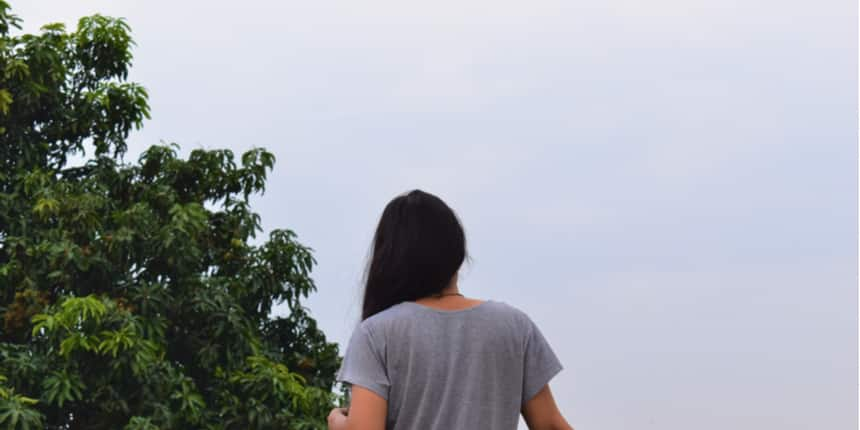Happily Solo: 9 Ways To Foster Healthy Independence
The truth is that all of us are, so to say, driving ‘solo’ in our journey of life and yet are always surrounded by, dependent upon, and engaging with people. We are alone, yet not alone. That is the duality of life, or may even be called a paradox.

Some Dependence Is Unavoidable
There exists this idea that being independent is the absolute negation of dependence, one should shun any form of dependence in any relationship because depending upon someone might be considered a sign of weakness, or that people are fickle and that leads to unnecessary betrayals.
However, truly independent people will tell you that dependence is unavoidable, and that it must be acknowledged, understood, and consciously made use of. One may wonder how dependence is unavoidable and to that I say, aren’t we dependent on our mailman, or our grocery store owner, on our house helps, our watchmen, on the pilots and the drivers, on farmers and chefs, on engineers, and doctors? Dependence can never be avoided.
'Hyper-Independence' May Reflect Trauma
Psychologists say, someone who displays overwhelming amounts of independence or is repulsed by any form of dependence is said to be ‘hyper-independent’, and let me tell you, hyper-independence is considered a trauma response to compensate for having been unable to depend on one’s caregivers in childhood, due to chaos, neglect, or abuse. Such children grow up feeling they cannot rely on anyone and must only rely on themselves. Furthermore, you will notice that it is the complete opposite in healthy independence, wherein individuals embrace the dependence that comes to them naturally and learn to be independent from within, rather than force themselves to be obsessively independent. There is an attempt to build a solid foundation within, and a relationship with themselves.
Differentiating Between Healthy And Unhealthy Independence
One can tell the difference between the two by listening to how people speak about independence. Those who truly enjoy it, do not find life burdensome by the eternality of one’s aloneness, are curious about life, wish to know how to tackle problems by themselves, yet do not feel apprehensive about asking for help because they realise that they ‘want’ help, and not ‘need’ it due to an inability, and that secures them of a sense of agency. They feel self-assured and confident in their abilities, as well as in their capacity to learn new skills in order to grow in life.
When someone offers help, they do not oscillate between being repulsed by the help and being so addicted to having a person help them out that when they stop, these individuals feel lost or abandoned. Healthy independence is playful and not rigid.
Tips To Be Happily Independent
Now that we have understood what healthy independence may look like, let us dive into ways to curate habits that help us in being healthily and happily alone.
Reparent Yourself
Whether you were someone who had a great childhood or not, reparenting yourself is the basis of healthy independence. To reparent one’s inner child is to understand one’s core needs, love languages, desires, triggers etc. And, to be able to provide for ourselves too. The reason we’re often hyper-independent and subconsciously co-dependent is that our infantile needs were perhaps not met properly, and to reparent is to learn to be our own parent, our own emotional anchor. So, the infantile and reptilian majority of our brain feels secure, safe, and capable of venturing out. An easy way of doing this is to develop strong self-discipline, and balance that with gentle self-compassion. This is the space where our paternal and maternal environments unite.
Also Read | Talking To Your Teen About Love And Relationships
Be Thankful For Yourself
Life shall have its pleasant, and unpleasant moments. But, truly what helps us find perspective and keep steadily on the path is practising gratitude, especially towards oneself. Learn to be grateful for your body, its functionality and capabilities, your brain, your mind, the depths of your psyche, etc. To be enamoured and in awe of oneself is the greatest trick to want to be around oneself. You could never be bored if you’re not boring.
Develop Healthy Coping Mechanisms
How we deal with stressors will determine how much we like ourselves and feel protected by ourselves. A few things to keep in mind:Avoid escapism in any way, be it through substances, too much online gaming, etc.
- Do not be afraid of pain, fear or grief. Rather, gradually train yourselves to face your fears.
- Do something for the mind, brain, body and soul when stressed. It could be mild physical exercise, listening to music, or eating your favourite comfort food.
- Do not be afraid to make mistakes. Be ferocious about taking personal responsibility and accountability in order to feel autonomous. Any time you commit a mistake, accept it and evaluate where you went wrong, and how that can be avoided in the future.
- Learn to respond, rather than react. Try not to be impulsive in your reactions to situations.
- Avoid unnecessary chaos and drama (It is better to be lonely sometimes than to be around the wrong people).
- Listen to your gut. If something feels wrong, try to evaluate rationally as to why you are feeling so and what can be modified about the situation. If there is nothing you can do to change the situation, try changing your reaction to the situation.
 Being In Nature Will Ensure You Remain Grounded
Being In Nature Will Ensure You Remain Grounded
Transform Your Boredom
It is boredom that leads us to distance ourselves from our own selves. To be able to not just withstand boredom, but allow ourselves to be bored in the company of ourselves, is key to becoming absolutely comfortable with our own selves. When you feel bored, think, reflect, and try out some creative activity that you have been wanting to engage in for long but have been unable to.
Also Read | Build Your Brain: Ways To Improve Long-Term Memory
Learn The Art Of Accomplishing Tasks And Prioritising
Every task we complete successfully releases dopamine in our brains and makes us feel good. Those who are able to work on their goals and prioritise what is important, feel a sense of continuity and progress in their lives. This also makes them more confident and self-assured. In being able to accomplish tasks, we prove to ourselves our own competence, which in turn makes us more likely to take risks and enter new territories.
Un-Follow The Crowd
Trends come and go, but, you stay forever. Learn to look away from what’s popular and preferred. Explore your own thoughts, preferences, attractions, and beliefs. Those beliefs we reason ourselves into are far more reliable than those we simply adopt without a rationale. In order to be independent, we must lose the urge to be dependent on popular culture, and seek to stand out with our uniqueness.
Also Read | Stream Selection For Class 11: What To Do When You Don't Fit In Any Of The Three Streams
Curate Rituals For ‘Me-Time’
‘Me-time’ should always be fascinating and exciting. Curate a set of meaningful rituals to engage in, every now and then. These rituals can be a unique blend of activities and hobbies you enjoy, or are beneficial to you. Inculcate the taste for spending meaningful time with yourself. This may include:-
- Journaling/Writing
- Spending time in nature or with pets
- Free-flowing movement
- Playing an instrument or singing
- Sketching, doodling, painting, pottery
- Volunteer work
- Cooking
- Gardening
- Reading
Most importantly, creating spaces for deriving fun in everyday tasks, when even a shower is enjoyable, every minute with oneself will be immensely satisfying.
Focus On Your Health
When we are busy taking care of ourselves, we rarely have time to waste. More importantly, it makes us feel physically and mentally energetic. You make yourself a priority and take action to emphasise it. A few things you should look to do include the following-
- Get daily sunlight.
- Get plenty of sleep.
- Avoid excessive sugar, salt, alcohol, smoking, and red meat.
- Get plenty of raw and fresh fruits and vegetables.
- Workout 30 minutes, at least 5 times a week.
- Stretch frequently.
- Learn to regulate your nervous system.
Also Read | Stay Grounded, Prevent Stress: Follow These 7 Mindfulness Tips
Develop Positive Self-Talk
How you speak to yourself about yourself will say much about how you feel about yourself. So, be careful in the way you talk to yourself, and develop positive and empowering self-talk. Use words and phrases that are encouraging, however, that should not mean keeping yourself devoid of constructive criticism. Avoid self-deprecating comments and humour.
Most importantly, understand that being alone is not a punishment to be endured until someone comes to ‘rescue’ you, but rather something worth deep enjoyment and contentment. Respect, love, admire, assure, and empower yourself, and you will see your mind, brain and body cooperating to make your experiences beautiful, memorable, and worth a lifetime!
Nilanjana Parijat is a Depth-Oriented, and Holistic Wellness Psychologist, with extensive hands-on experience in working with children, adolescents and families. She currently works with Reboot Wellness, Gurugram.
